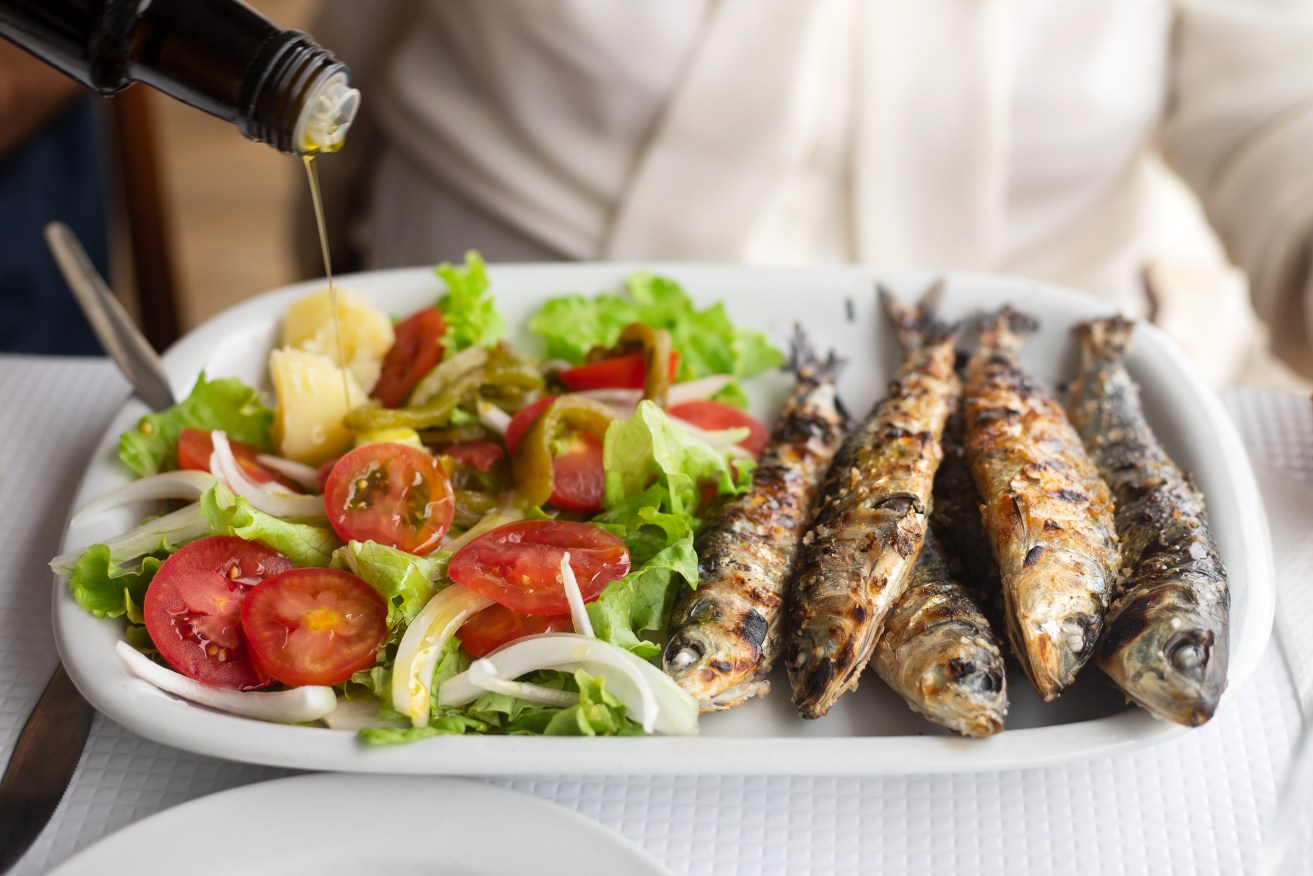Extract from The New Daily

About as healthy as it gets: Grilled sardines are tasty, cheap and protect the heart. Photo: Getty
Less than one per cent of Australian adults report eating sardines. We’re more a beef and lamb nation.
But a new study suggests that if Australians swapped out red meat for sardines and other forage fish, we “could avoid around 30 to 40 per cent of deaths from ischemic heart disease”.
If the swap was made on a global scale, the researchers – from Australia and Japan – found that up to 750,000 lives a year could be saved by 2050.
Also, adopting sardines and other forage fish – such as herring and anchovies – would “significantly reduce the prevalence of disability from diet-related disease”.
Further, the planet would benefit because forage fish “have the lowest carbon footprint of any animal food source”.
Forage fish, also known as prey fish or bait fish, are small ocean-going fish that are preyed upon by critters further up the foods chain, such as larger fish, seabirds and marine mammals such as seals.
Forage fish feed on plankton, often by filter feeding, near the bottom of the food chain.
Why the heart needs more help than ever before
According to a 2020 report from the World Health Organisation, heart disease has remained the leading cause of death for the past 20 years.
However, “it is now killing more people than ever before”.
The number of deaths from heart disease increased by more than two million since 2000, to nearly nine million in 2019.
The authors of the new study report there is mounting evidence that “that links red and processed meat consumption with heightened risks of non-communicable disease, which accounted for around 70 per cent of all deaths globally in 2019″.
Of these, coronary heart disease, stroke, diabetes, and bowel cancer made up nearly half (44 per cent) of this toll, with coronary artery disease taking the lion’s share.
How sardines can help
Forage fish are rich in omega-3 long-chain polyunsaturated fatty acids (DHA and EPA).
Evidence suggests the intake of these help to prevent coronary heart disease. Plenty of people would rather take an omega-3 fatty acid supplement.
But as we previously reported, omega 3 fatty acid supplements don’t meaningfully prevent premature death.
Nor do they protect against cancer, or benefit your heart.
Even worse, they can hurt you: These supplements are associated with an increased likelihood of developing atrial fibrillation.
However, the omega-3 fatty acids from oily fish will in fact deliver those heart health benefits.
Forget salmon, go for the cheaper option
People think of salmon as the go-to. But salmon isn’t cheap.
Instead, try canned sardines. They’re more tasty and not as muddy in texture as they used to be. You can pick them up for about $2.
They’re also abundant in calcium and vitamin B12.
So … here we have a class of hero fish.
A diet of forage fish would be especially helpful for low- and middle-income countries. Why? Because these fish are cheap and plentiful, and the toll of heart disease is high.
But get this: “Three-quarters of the forage fish catch … is ground into fishmeal and fish oil.”
This includes a significant amount caught off the coasts of countries enduring food insecurity and malnutrition. This is largely seen in the Global South (largely China, India, Indonesia, Brazil and Pakistan).
These products “are mostly used for fish farming, destined for high-income consumers”.
What a waste!
Limited supply
The researchers acknowledge that the limited supply of forage fish “isn’t sufficient to replace all red meat”.
But there is potentially enough to increase the daily per capita consumption of fish closer to the recommended level of 40 kcal in most countries.
Then we’d see that magical reduction of deaths from coronary heart disease, stroke, diabetes, and bowel cancer by two per cent in 2050.
No comments:
Post a Comment